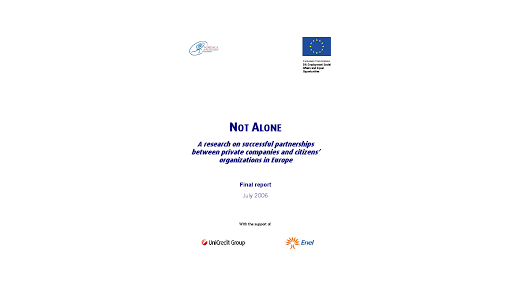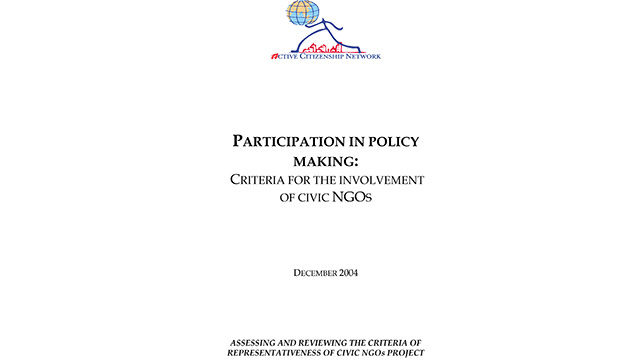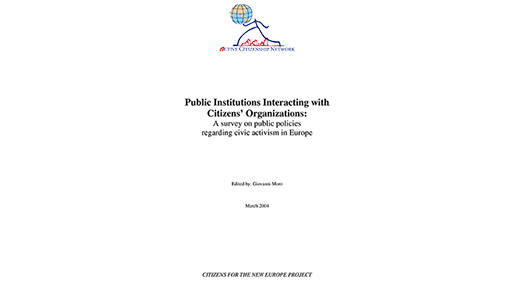X

A civic evaluation of National Regulatory Authorities (on transport, energy, etc.) is a typical example of a consumer organisation working for general interest services. The project involved eight European member States. The added value of this kind of evaluation was representing citizens' and consumers' points of view. Analyzing the complaints gathered by citizens and consumers' organizations and the experiences they might have had working with the National Regulatory Authorities of their countries of origin created a new level of evaluation of the efficiency and efficacy of the National Regulatory Authorities. This activity enabled us to compare the strengths and weaknesses of their functioning and identify best practices.

The Charter aims to bridge the gap existing in the Community rules about the rights, duties, powers and responsibilities of civic organisations acting in the public policies cycle. The Charter was drawn up on the basis of an analysis of 50 good practices in the relationship between citizens' organisations and institutions gathered in 10 European Union countries and of the comments, feedback and suggestions of scholars, citizens' organisations, and public institutions.

As part of their activities on the "citizens' side" of corporate social responsibility and on the participation of citizens' organizations in policymaking, Active Citizenship Foundation (FONDACA) and Active Citizenship Network (ACN) carried out a research project on partnerships between private companies and citizens' organizations in eight European Union countries. The research aimed, on the one hand, at filling the existing gap in knowledge on cooperation between citizens' organizations and companies in developing corporate social responsibility (CSR) activities; and, on the other, at identifying guidelines based on existing good practices for the development of partnerships in Europe.

The project aimed to involve citizens' organizations of the newly formed Europe and Latin America in the assessment and the revision of the representativeness criteria used to identify the civic NGOs to be involved in public policy making at the national, European, and international level. The general aim was to examine the existing institutional criteria for identifying civic organizations to participate in the public policy process and to bring together civic organizations' proposals for fair and feasible criteria. The rationale underlying this project was that, while civic NGOs have a growing role in policymaking at all levels, the identification criteria used by institutions to involve these organizations are often obscured or otherwise inadequate.
The European Charter of Patients' Rights was drafted in 2002 by Active Citizenship Network in collaboration with 12 citizens' organizations from different EU countries. The European Charter of Patients' Rights states 14 patients' rights that together aim to guarantee a "high level of human health protection" (Article 35 of the Charter of fundamental rights of the European Union) and to assure the high quality of services provided by the various national health services in Europe.
The 14 rights are an embodiment of fundamental rights and, as such, they must be recognised and respected in every country. They are correlated with duties and responsibilities that both citizens and health care stakeholders have to assume. The Charter applies to all individuals, recognising the fact that differences, such as age, gender, religion, socio-economic status etc., may influence individual health care needs. Period: 2002

This PROJECT intended to support national-based citizens' organizations of the, at the time, 28 New Europe countries in their efforts to be involved in the building of European citizenship. It was implemented between September 2002 and December 2003 and involved 32 citizens' organizations operating at the national level as partners. The project's general aim was to promote a European policy on civic organisations regarding the European Union institutions and national governments.